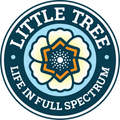Dry January and the Decline of Alcohol Use
Dry January is a month-long challenge where participants abstain from consuming alcohol to reset their drinking habits, improve their health, and reflect on their relationship with alcohol. The movement has gained global popularity as a way to start the new year with healthier choices. Participants often report benefits such as improved sleep, better mental clarity, enhanced physical health, and financial savings. Dry January encourages mindfulness around alcohol consumption, helping individuals reassess their drinking habits and potentially develop more sustainable, moderate behaviors throughout the year.
Alcohol use has been on the decline in recent years, particularly among younger generations, as people become more health-conscious and aware of the negative impacts of excessive drinking. Concerns about alcohol’s long-term health effects, including liver damage, mental health issues, and addiction, have contributed to this trend. Additionally, the rise of sober-curious movements and an increase in non-alcoholic beverage options have made it easier for people to reduce or eliminate alcohol consumption without feeling socially excluded.
For individuals seeking support during Dry January or transitioning away from alcohol, cannabis has emerged as a potential alternative for relaxation and stress relief. Unlike alcohol, which can lead to physical dependence and harmful health effects, cannabis, when used responsibly, offers a lower-risk option for managing anxiety or unwinding. Cannabidiol (CBD), a non-intoxicating compound in cannabis, has been particularly popular for its calming properties without the psychoactive effects associated with tetrahydrocannabinol (THC). For those looking for very mild psychoactive effects, THC, particularly in low to moderate doses, can provide a positive experience as a mood booster, sleep aid, pain relief and more. It's up to you whether you are looking for the experiences of CBD vs. THC. Either option offers a viable option for those looking to enhance their well-being without turning to alcohol.
When incorporating cannabis as part of an alcohol-free lifestyle, it is essential to prioritize safety and moderation. Consulting with a healthcare professional and choosing high-quality, lab-tested products can ensure a positive experience. By integrating cannabis thoughtfully, individuals can find new ways to relax and enjoy social interactions while maintaining their commitment to a healthier, alcohol-free lifestyle.

